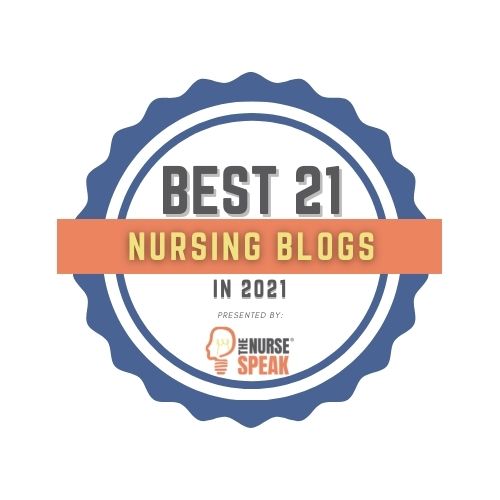
The nursing profession offers a multitude of career paths, each with its own unique set of advantages and challenges. Two of the most compelling options for nurses are becoming an entrepreneur or working as an employee. Nurse entrepreneurship allows individuals to create their own destinies and shape their careers, while working as an employee nurse provides the security of a steady paycheck and a defined role within a healthcare organization. In this article, we will delve into the pros and cons of nurse entrepreneurship versus working as an employee nurse, helping aspiring nurses make informed decisions about their career paths.
Pros of Nurse Entrepreneurship:
- Autonomy and Independence: One of the primary advantages of nurse entrepreneurship is the freedom to establish your own practice and work on your terms. As an entrepreneur, you have the power to make decisions that align with your vision, values, and professional goals. You can choose your patient population, set your own hours, and tailor your services to meet specific community needs. This autonomy can be incredibly empowering for nurses seeking to make a meaningful impact in healthcare.
- Unlimited Income Potential: Nurse entrepreneurs have the potential to earn significantly higher incomes compared to their employed counterparts. By owning and managing their businesses, nurses can control their pricing, negotiate contracts, and explore various revenue streams beyond traditional nursing roles. Moreover, as your practice grows, you can expand your services, hire additional staff, and increase your income potential even further.
- Innovation and Creativity: Nurse entrepreneurship encourages innovation and creativity in healthcare delivery. As an entrepreneur, you have the freedom to explore new ideas, implement novel approaches, and introduce cutting-edge technologies to improve patient care. By challenging the status quo, nurse entrepreneurs can drive positive change and contribute to the advancement of the nursing profession as a whole.
Cons of Nurse Entrepreneurship:
- Financial Risk: Starting and sustaining a nursing business involves financial risks. Launching a private practice or healthcare-related venture requires upfront investment in licenses, certifications, equipment, marketing, and staff. Additionally, there is always the possibility of fluctuating patient volumes, insurance reimbursement challenges, and other unforeseen financial burdens that can put a strain on the business.
- Increased Responsibility: Nurse entrepreneurs shoulder the responsibility of not only providing quality client or patient care but also managing various aspects of their businesses. Running a successful healthcare practice or consulting business demands a diverse skill set, including business management, marketing, accounting, and legal compliance. This increased responsibility can lead to longer work hours, added stress, and a constant need for learning and adapting to evolving market trends.
- Limited Clinical Focus: Nurse entrepreneurs often find themselves juggling multiple roles, which can limit their focus on direct patient care. As the business grows, administrative tasks may take precedence over hands-on nursing responsibilities. While this shift allows for greater influence in shaping healthcare delivery, education and client outcomes, some nurses may miss the close patient interactions and clinical experiences that come with being solely focused on working in a clinical setting providing direct patient care.
Pros of Working as an Employee Nurse:
- Stable Income and Benefits: One of the main advantages of being an employee nurse is the stability that comes with a steady income and comprehensive benefits package. Employed nurses typically enjoy paid time off, health insurance, retirement plans, and other benefits provided by their employers. This financial security can offer peace of mind and provide a strong foundation for personal and professional growth.
- Professional Support and Resources: Working within an established healthcare organization provides access to a wide range of resources, including state-of-the-art facilities, advanced medical technologies, and a network of experienced colleagues. Collaboration with fellow healthcare professionals, mentorship opportunities, and ongoing training and development programs can enhance clinical expertise and contribute to career advancement.
- Work-Life Balance: Employee nurses often benefit from structured schedules and predictable work hours, allowing for better work-life balance. This can be especially important for nurses with families or other personal commitments. The ability to leave work behind at the end of a shift and not bear the weight of administrative and business-related responsibilities can contribute to reduced stress levels and improved overall well-being.
Cons of Working as an Employee Nurse:
- Limited Control and Decision-Making Power: While employed nurses have the opportunity to contribute to patient care, they ultimately work within the established protocols and policies of their organization. Decision-making power may be limited to individual patient cases, and broader system-level changes may be beyond their control. This lack of autonomy can be frustrating for nurses seeking greater influence in shaping their own practice.
- Limited Financial Growth: Unlike nurse entrepreneurs, employee nurses have less control over their income potential. Salary increases are typically based on annual performance evaluations and predetermined wage scales, leaving less room for negotiation. Additionally, while some opportunities for advancement exist within organizations, reaching higher levels of leadership may require additional education or years of experience.
- Less Flexibility: Working as an employee nurse often entails adhering to a fixed schedule set by the organization. Depending on the workplace, nurses may have limited flexibility to accommodate personal commitments or pursue alternative work arrangements. This lack of flexibility can be challenging for nurses who desire more control over their work hours and the ability to adapt their schedules to fit their personal needs.
Nurse entrepreneurship and working as an employee nurse each offer their own unique benefits and challenges. Aspiring nurses should carefully evaluate their personal values, goals, and appetite for risk when deciding which path to pursue. Nurse entrepreneurship provides autonomy, income potential, and the opportunity to drive innovation, while working as an employee nurse offers stability, professional support, and work-life balance. Ultimately, the choice between the two lies in understanding your personal aspirations and finding the right balance between professional fulfillment and personal well-being on your nursing journey.
I have over 13 years of Nursing experience that has allowed me to be an employee at all levels, as well as experience consulting, and entrepreneurship! Nursing has been a tremendously meaningful and challenging career and it continues to provide me with opportunities to grow my skills and knowledge, while also doing what I love the most – helping others develop strategies for success! To maximize my income potential – I’ve created a self-sustaining business, where I’ve created multiple revenue streams, while also leveraging my Nursing experience and skills to have a great paying Nurse employee position, where I can remain up-to-date with clinical skills, regulations, and where I can support frontline Nursing staff in providing care for members of our community. Honestly – it’s a win-win, and I really LOVE being a Nurse!
Best wishes!
-Damion













